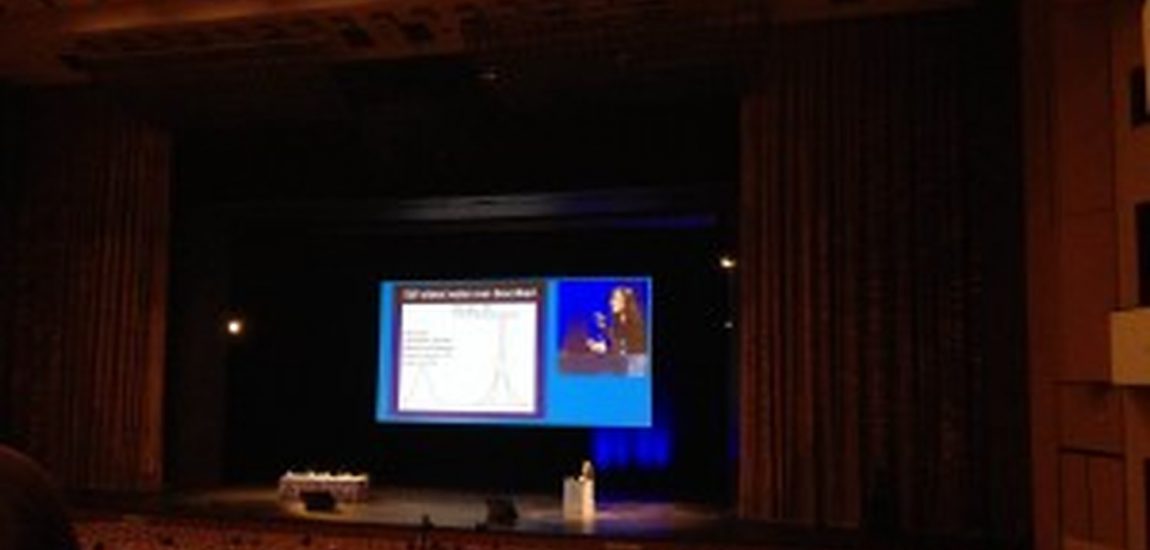
Remember the hydrosphere!
Barbara Sherwood Lollar from the University of Toronto, Canada gave the plenary session this Wednesday on “Dark Energy from the Deep Hydrosphere: Water-Rock Reactions Sustaining Deep Subsurface Microbiology. This was actually quite a different set of water-rock reactions than what I focus on, thus ever-confirming the wide range of topics that geochemistry encompasses.
I really enjoyed this talk’s introduction to the waters she and her group had been studying by mentioning the Wikipedia definition of geobiology – “an interdisciplinary field of scientific research that explores interactions between the biosphere and the lithosphere and/or the atmosphere.” The fact that the hydrosphere is missing is quite surprising considering water makes up 71% of the Earth’s surface and how important the oceans, glaciers and freshwaters are to not only our lives but to the other “spheres” of the world.
Along with research into the global production of H2 to the continental crust from water-rock reactions, Barbara explained how by following the water in boreholes and fractures, they have been able to analyse the oldest waters on Earth in addition to discovering the limits of life in the deep hydrosphere in a “Galapagos of the Deep” (Nature Paper HERE).
After her talk, I had the chance to join the Meet the Plenary lunch with fellow students and researchers. We were very excited to have the chance for Barbara to speak more about her research and answer any of our lingering questions. One thing to note was how closely they worked with the drillers of mines like Kidd Creek Mine. Barbara was even able to name many of them who would call her and her team up when they had discovered a new fracture spouting with waters.
I found this part of our discussion particularly exciting as I love when geoscience enters the lives of those who might never have thought they could be a part of some fantastic new research. It’s awesome that these drillers have such a vital role in exploring deep subsurface microbiology and are credited with some of the group’s best finds!
Offering these lunch sessions with the plenary speakers afterwards is also such a nice opportunity for students to really interact with some of the best scientists in the field. It would be good to see this continued in future conferences!
